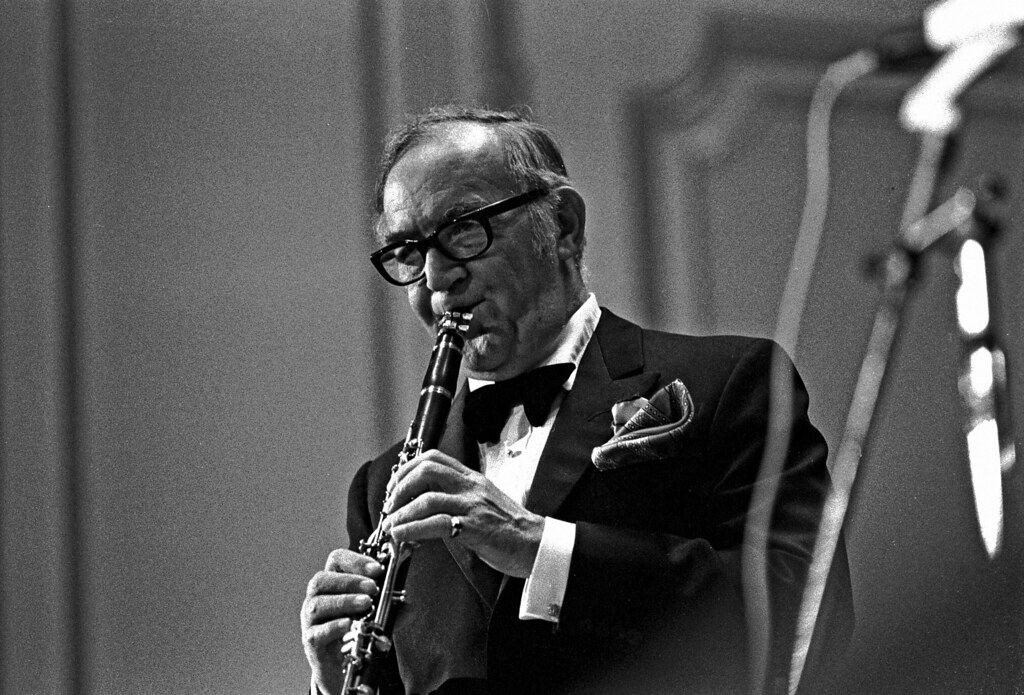 In the 1930s and 1940s, big band “swing” music increased the popularity of jazz music in the United States. Blues and jazz music were first brought to Illinois in the early 20th century by African Americans such as Louis Armstrong, coming to Illinois from the Deep South during the first great migration. Described as the “King of Swing,” Benny Goodman led one of the most popular bands of the WWII era and was a symbol of the successful immigrant narrative.
In the 1930s and 1940s, big band “swing” music increased the popularity of jazz music in the United States. Blues and jazz music were first brought to Illinois in the early 20th century by African Americans such as Louis Armstrong, coming to Illinois from the Deep South during the first great migration. Described as the “King of Swing,” Benny Goodman led one of the most popular bands of the WWII era and was a symbol of the successful immigrant narrative.
Benny Goodman was born in Chicago in 1909. He was the ninth of twelve children born to poor Jewish immigrants from Russia. His family lived in the Maxwell Street neighborhood, home to a mixture of Italian, Polish, Greek and Jewish immigrants. His formative musical training was at Jane Addam’s Hull House, a social settlement house near Maxwell Street, where he spent two years as a member of the boy’s club band. Goodman learned to play multiple instruments before becoming a bandleader.
In addition to clarinet, Benny Goodman sometimes played alto saxophone and baritone saxophone. His first recording was made on December 9, 1926, in Chicago. He began to lead his own orchestras in 1934 at the Billy Rose Music Hall, then conducted the orchestra on the weekly radio program "Let's Dance" in 1934-1935, and played at numerous hotels, colleges and theaters. On the evening of Jan. 16, 1938, Goodman’s group became the first jazz band to play at Carnegie Hall, bringing critical acceptance to the genre. Expanding his musical efforts, he performed in chamber music concerts, later touring throughout the U.S., Europe, Asia, South America and the USSR. In addition to his global popularity, Goodman took strong stances on social issues.
Benny Goodman favored racial integration in America at a time when the idea was highly unpopular. In the early 1930s, black and white musicians could not play together in most clubs and concerts. Goodman hired black musicians Teddy Wilson for his trio and vibraphonist Lionel Hampton for his quartet.
Some of his other popular songs and instrumental compositions include "Lullaby in Rhythm," "Don't Be That Way," "Seven Come Eleven," "Flying Home," "Two O'Clock Jump," "Air Mail Special," "Dizzy Spells," "If Dreams Come True," "Georgia Jubilee," "Four Once More," and "The Kingdom of Swing.”





